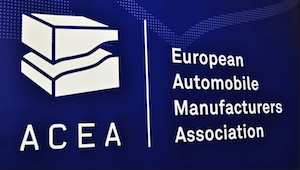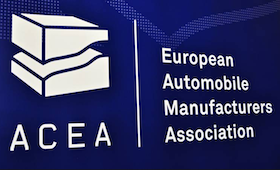The European Automobile Manufacturers’ Association (ACEA), which represents the EU’s seven major truck producers, is highly concerned about the outcome of the European Parliament’s plenary vote on the region’s first-ever CO2 standards for heavy-duty vehicles. ACEA is particularly alarmed by the excessively aggressive CO2 reduction targets that a tight majority of Members of the European Parliament (MEPs) have backed today: -20% by 2025 and at least -35% by 2030. “These targets go over and above the proposal made by the European Commission last May, which was already very challenging,” noted Erik Jonnaert, ACEA Secretary General.
ACEA is particularly alarmed by the excessively aggressive CO2 reduction targets that a tight majority of Members of the European Parliament (MEPs) have backed today: -20% by 2025 and at least -35% by 2030. “These targets go over and above the proposal made by the European Commission last May, which was already very challenging,” noted Erik Jonnaert, ACEA Secretary General.
The 2025 target would also require truck makers to fit new technologies to vehicles that are already under development, even if this was not originally planned. “The R&D and production processes of the European truck industry would be negatively affected by these targets, for which the short lead time simply doesn’t match the long development cycles for trucks,” Jonnaert added.
ACEA welcomed in principle the Commission’s proposal to incentivise zero- and low-emissions trucks via ‘super-credits’. Today, however, MEPs voted to set a benchmark system instead, which would include a ‘malus’ to penalise manufacturers who do not sell a mandatory quota of zero- and low-emissions trucks.
Jonnaert: “MEPs seem to be blatantly ignoring the fact that the potential for electrifying the truck fleet is far lower than for cars, due to issues such as extremely high upfront costs, range limitations, insufficient infrastructure – particularly along motorways – as well as reluctant customers.”
“Our members remain committed to driving down CO2 emissions as quickly as possible,” ACEA’s Secretary General emphasised. “What we are calling for is a well-balanced regulation which encourages, supports and accelerates the technological shift towards low- and zero-emission powertrains, without jeopardising the industry’s competitiveness.”
ACEA takes note of the fact that there was a weak majority for the final Parliament report. “Looking ahead, we hope that national governments will take a more balanced approach when adopting their common position on future CO2 targets.”


.gif?rand=1586)










